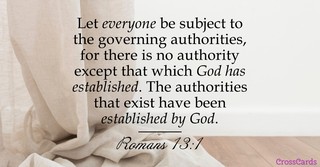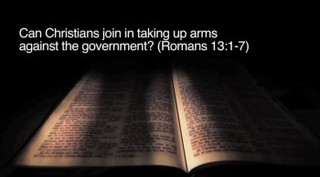
- Recent Translations
- All Translations
Romans 13:3
Share
Settings
Images for Romans 13:3

Romans 13:3 Meaning and Commentary
For rulers are not a terror to good works
That is, to them that do good works in a civil sense; who behave well in the neighbourhoods, towns, cities, and countries where they dwell. The apostle seems to anticipate an objection made against governors, as if there was something very terrible and formidable in them; and which might be taken up from the last clause of the preceding verse; and which he removes by observing, that governors neither do, nor ought to inject terror into men that behave well, obey the laws, and keep a good decorum among their fellow subjects, not doing any injury to any man's person, property, and estate. The Jews F1 have a saying,
``that a governor that injects more fear into the people, than is for the honour of God, shall be punished, and shall not see his son a disciple of a wise man.''But to the evil;
to wicked men, who make no conscience of doing hurt to their fellow creatures, by abusing their persons, defrauding them of their substance, and by various illicit methods doing damage to them; to such, rulers are, and ought to be terrors; such are to be menaced, and threatened with inflicting upon them the penalty of the laws they break; and which ought to be inflicted on them by way of punishment to them, and for the terror of others. R. Chanina, the Sagan of the priests F2, used to say,
``pray for the peace of the kingdom, for if there was no (harwm) , "fear", (i.e. a magistrate to inject fear,) one man would devour another alive.''Wilt thou not then be afraid of the power?
of the civil magistrate, in power and authority, to oppose him, to refuse subjection to him, to break the laws, which, according to his office, he is to put in execution.
Do that which is good:
in a civil sense, between man and man, by complying with the laws of the land, which are not contrary to the laws of God; for of doing good in a spiritual and religious sense he is no judge:
and thou shalt have praise of the same;
shall be commended as a good neighbour, a good citizen, and a good commonwealth's man; an honest, quiet, peaceable man, that does not disturb the peace of civil society, but strengthens and increases it.
F1 T. Bab. Roshhashana, fol. 17. 1. Maimon. Hilch. Sanhedrin, c. 25. sect. 1.
F2 Pirke Abot, c. 3. sect. 2.
